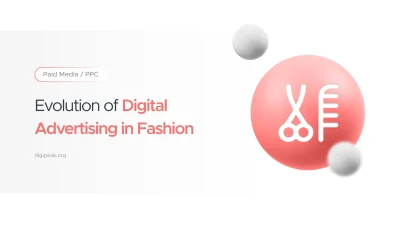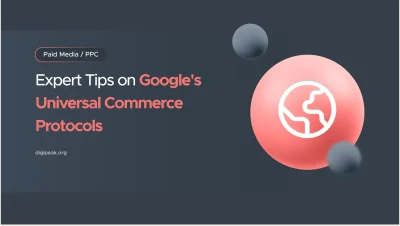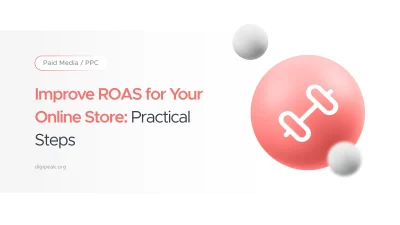
Evolution of Digital Advertising in Fashion
In an industry where trends change faster than seasons, relying on old-school advertising is a …
31/08/2023 -
8 dk okuma
Stay up to date with Peakers
In today’s digital age, where consumers are inundated with marketing messages, email marketing remains a powerful and effective strategy for businesses to engage their target audience, nurture leads, and drive conversions.
With its ability to deliver personalized content, cost-effectiveness, and measurable results, email marketing has become a cornerstone of successful digital marketing campaigns.
In this comprehensive blog, we will explore the intricacies of email marketing, providing detailed insights, strategies, and best practices that will empower you to create compelling campaigns and achieve remarkable results.
Email marketing holds immense potential for digital marketing agencies due to its ability to build relationships, acquire and retain customers, and deliver targeted and personalized communication. Let’s explore the key benefits in detail:
Email marketing allows agencies to establish and strengthen relationships with their target audience. By delivering valuable content, personalized offers, and relevant information, agencies can build trust and loyalty with subscribers. This personalized approach fosters a sense of connection and encourages engagement, increasing the likelihood of conversions.
Email marketing is an effective tool for acquiring new customers and retaining existing ones. Agencies can use email campaigns to capture leads, nurture them through the sales funnel, and convert them into paying customers. Additionally, by sending regular newsletters and updates, agencies can keep existing customers engaged, encourage repeat business, and foster long-term relationships.
Email marketing allows agencies to segment their audience based on various criteria, such as demographics, interests, or previous engagement. By tailoring content to the specific preferences and needs of different segments, agencies can deliver more relevant and engaging emails, increasing the chances of conversion. Personalization goes beyond simply addressing recipients by name; it involves delivering content that resonates with their unique interests and pain points.
Take Advantage of Automation with Artificial Intelligence!
How can you use your time more efficiently? Artificial intelligence saves you time by automating repetitive tasks. Learn how you can leverage AI to accelerate your business processes.
Compared to traditional marketing channels, email marketing is a cost-effective method of reaching a large audience. Digital marketing agencies can deliver targeted messages to a vast number of subscribers at a fraction of the cost of other advertising methods. This efficiency allows agencies to maximize their marketing budgets and achieve a higher return on investment (ROI).
Is Your Ad Budget Flowing but Nothing in Return?
Get Free Ad Analysis with Digipeak!
Which campaigns are a waste of money? Are you spending unnecessary money? Where are the potential opportunities? We examine your ad performance in detail. Fill out the form now for a free analysis!
Email marketing provides valuable insights into campaign performance. Agencies can track metrics such as open rates, click-through rates, conversion rates, and overall engagement. These analytics help agencies evaluate the success of their campaigns, identify areas for improvement, and make data-driven decisions to optimize future campaigns.
Email marketing platforms offer automation features that allow agencies to streamline their campaigns and scale their efforts. Automated workflows, such as welcome series, drip campaigns, or abandoned cart reminders, can be set up to deliver targeted messages based on predefined triggers. This automation saves time and effort for agencies while ensuring consistent and timely communication with subscribers.
To create impactful email marketing campaigns, it’s essential to focus on several key elements that drive engagement and conversions:
A strong foundation starts with a quality email list. Implement the following strategies to ensure a healthy and engaged subscriber base:
Break down your email list into different segments based on subscribers’ unique characteristics, interests, and preferences. This allows for more targeted and personalized communication, increasing the effectiveness of your campaigns.
Leverage subscriber data to deliver personalized content and offers. Address recipients by name and tailor the content to their specific needs and preferences.
To capture recipients’ attention and drive engagement, focus on the following aspects:
Craft compelling subject lines that create curiosity, generate interest, and entice recipients to open your emails. Experiment with different approaches, such as posing questions, using intriguing statements, or offering exclusive benefits.
Keep your email content concise, informative, and relevant. Use clear and concise language, avoiding jargon or technical terms that may confuse or alienate your audience.
Create visually appealing emails that align with your brand’s identity. Incorporate high-quality images, eye-catching graphics, and a well-structured layout to enhance readability and overall aesthetics.
Include clear and compelling CTAs that guide recipients towards the desired action. Use actionable language and ensure that CTAs are prominently placed within the email.
With the increasing use of mobile devices, it’s crucial to design emails that provide an optimal user experience across different screen sizes. Consider the following tips:
Utilize responsive design techniques to ensure that your emails automatically adjust to fit different devices and screen resolutions.
Opt for a clean and streamlined layout that prioritizes important information and CTAs. Minimize scrolling and ensure that the email is easy to navigate on mobile devices.
Use fonts that are easily readable on small screens, and ensure that buttons and links have an appropriate size for easy tapping.
Provide valuable content that meets the needs and interests of your subscribers. Consider the following strategies:
Tailor your content based on subscriber preferences, purchase history, or browsing behavior. Deliver relevant recommendations, personalized offers, or exclusive content to enhance engagement.
Create targeted offers or promotions that align with the interests and needs of specific segments within your email list. This approach increases the likelihood of conversion by delivering highly relevant offers to recipients.
Continuously monitor and optimize your email campaigns to enhance their effectiveness. Implement the following practices:
Experiment with different variables, such as subject lines, CTAs, or email layouts, to identify the most effective approaches. Test one element at a time to accurately measure the impact of each change.
Analyze key metrics such as open rates, click-through rates, and conversions to gain insights into campaign performance. Identify trends, patterns, and areas for improvement, and use this data to refine future campaigns.
Apply the learnings from your performance analysis to optimize future campaigns. Implement changes based on data-driven decisions, and continue testing and refining your email marketing strategies.
Email marketing plays a crucial role in driving e-commerce success. To maximize the impact of your campaigns, consider the following strategies:
Segmentation is key in e-commerce email marketing. Consider the following segmentation strategies:
Divide your email list based on where subscribers are in their customer journey, such as awareness, consideration, or decision stage. Tailor your emails to align with their specific needs and preferences.
Segment your list based on previous purchases, order value, or product categories. Deliver personalized recommendations, cross-sell or upsell offers to increase customer engagement and revenue.
Implement automated email workflows to remind users about their abandoned carts, offer incentives, or provide assistance to encourage them to complete the purchase.
Apply the following strategies to drive engagement and boost conversions in your ecommerce email campaigns:
Provide curated content, industry news, product updates, or educational resources to keep subscribers informed and engaged. Share useful tips, buying guides, or exclusive content to position your brand as an industry authority.
Incorporate high-quality product images, lifestyle visuals, or interactive elements to showcase your products and captivate recipients’ attention. Visuals can evoke emotions and create desire, leading to increased click-through rates and conversions.
Guide recipients with clear and actionable CTAs that lead to the desired action, such as product purchase, subscription, or signing up for a webinar. Ensure that CTAs are visually prominent and accompanied by persuasive copy.
Continuously test and optimize your e-commerce email campaigns to improve results. Experiment with different offers, visuals, or personalization techniques to identify the most effective strategies for your audience.
Selecting the right email marketing platform is crucial for executing successful campaigns. Consider the following platforms, each with its own unique strengths, according to Investopedia:
Offers a user-friendly interface, robust automation features, and extensive integrations.
Provides advanced automation capabilities and powerful segmentation options.
A beginner-friendly platform with intuitive drag-and-drop functionality and affordable pricing.
Offers a comprehensive suite of marketing tools, including email marketing, CRM, and automation features.
Provides cost-effective pricing plans, an intuitive interface, and advanced automation capabilities.
Specializes in e-commerce email marketing, offering advanced segmentation and automation features tailored to online stores.
Email marketing remains an indispensable tool for digital marketing agencies and businesses to engage their audiences, nurture leads, and increase conversions.
By harnessing the power of targeted and personalized communications, optimizing content and design, and implementing robust testing and optimization strategies, you can create engaging email marketing campaigns that attract recipients and drive remarkable results.
Embrace the potential of email marketing as the cornerstone of your digital marketing strategy and unlock growth, success, and lasting customer relationships in today’s competitive landscape with Digipeak.
Get an Offer


Join Us So You Don't
Miss Out on Digital Marketing News!
Join the Digipeak Newsletter.
Related Posts

In an industry where trends change faster than seasons, relying on old-school advertising is a …

The digital commerce landscape is currently navigating through its most profound structural transformation since the …

If you're here, you're likely feeling the pressure of the "e-commerce squeeze." Advertising costs on …

The digital marketing playbook has been completely updated. In 2026, the old method of "spray …